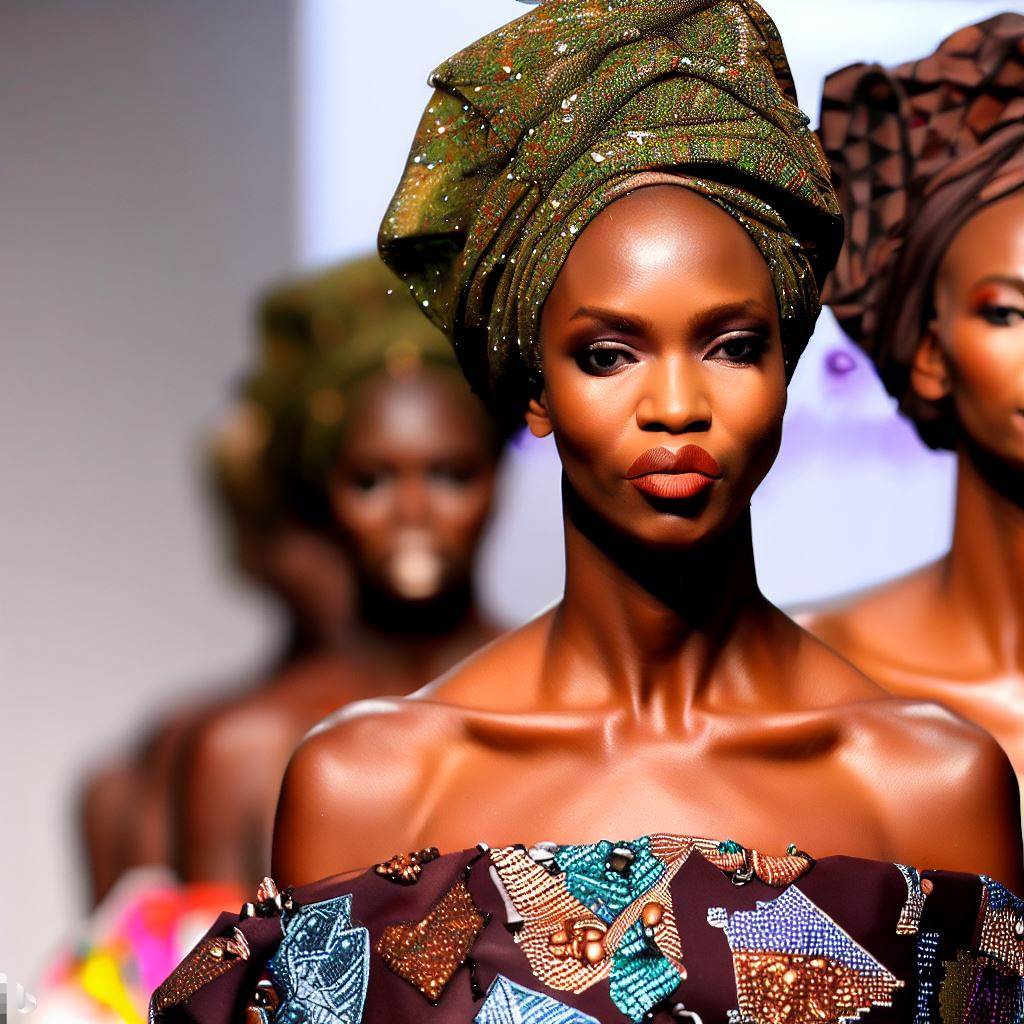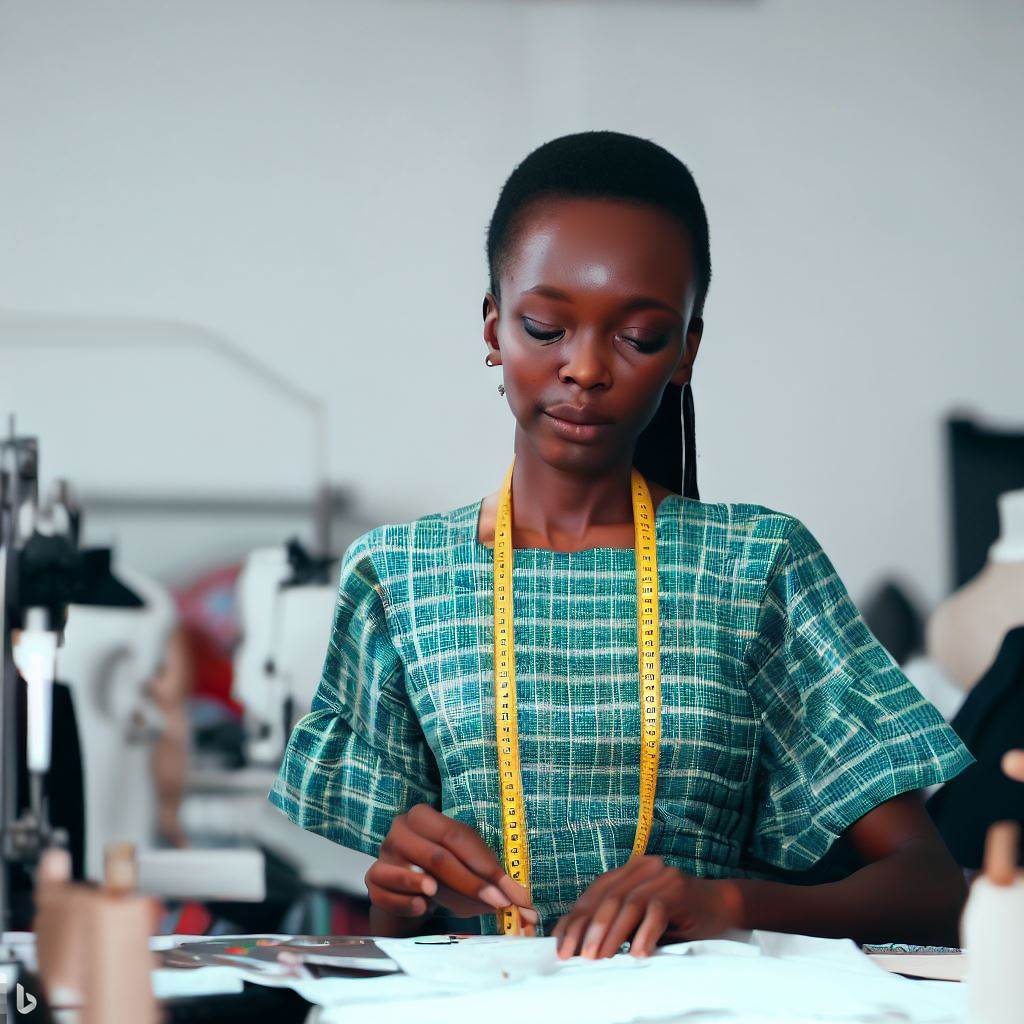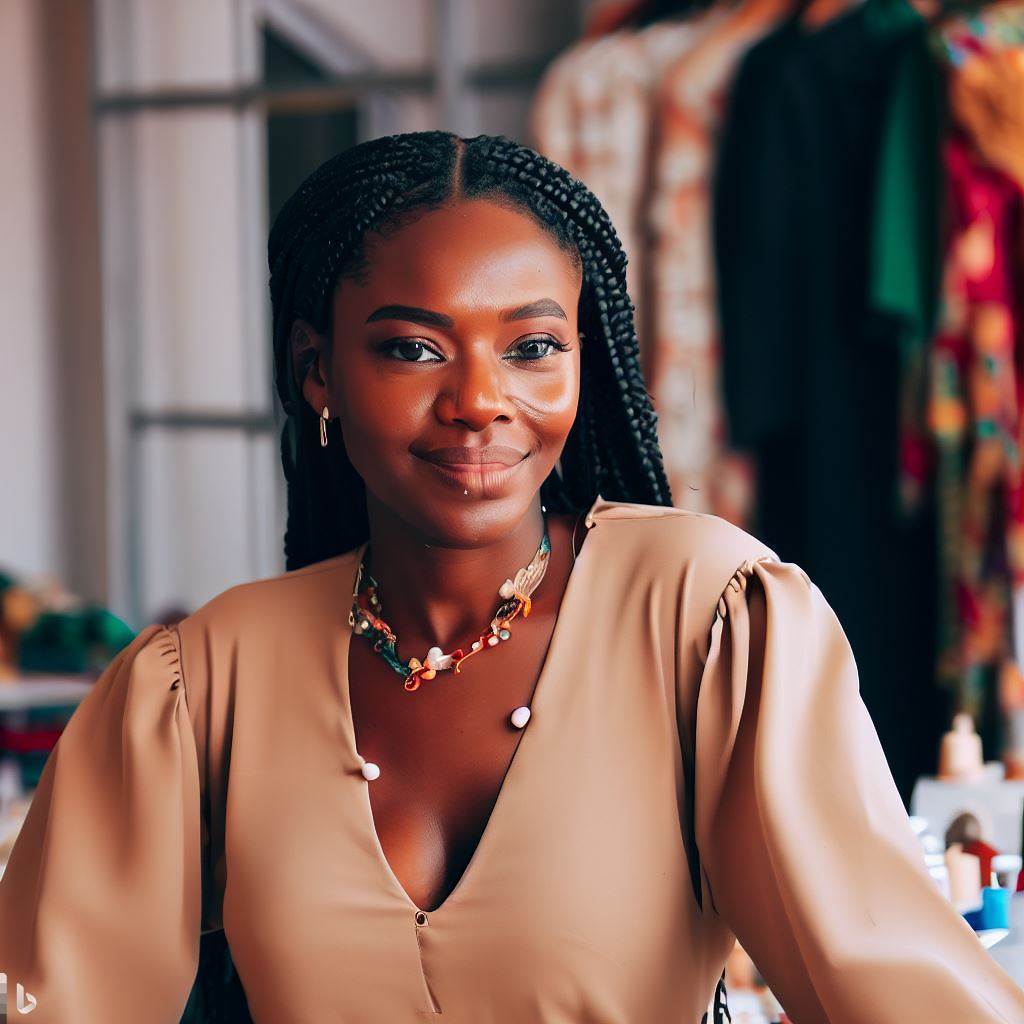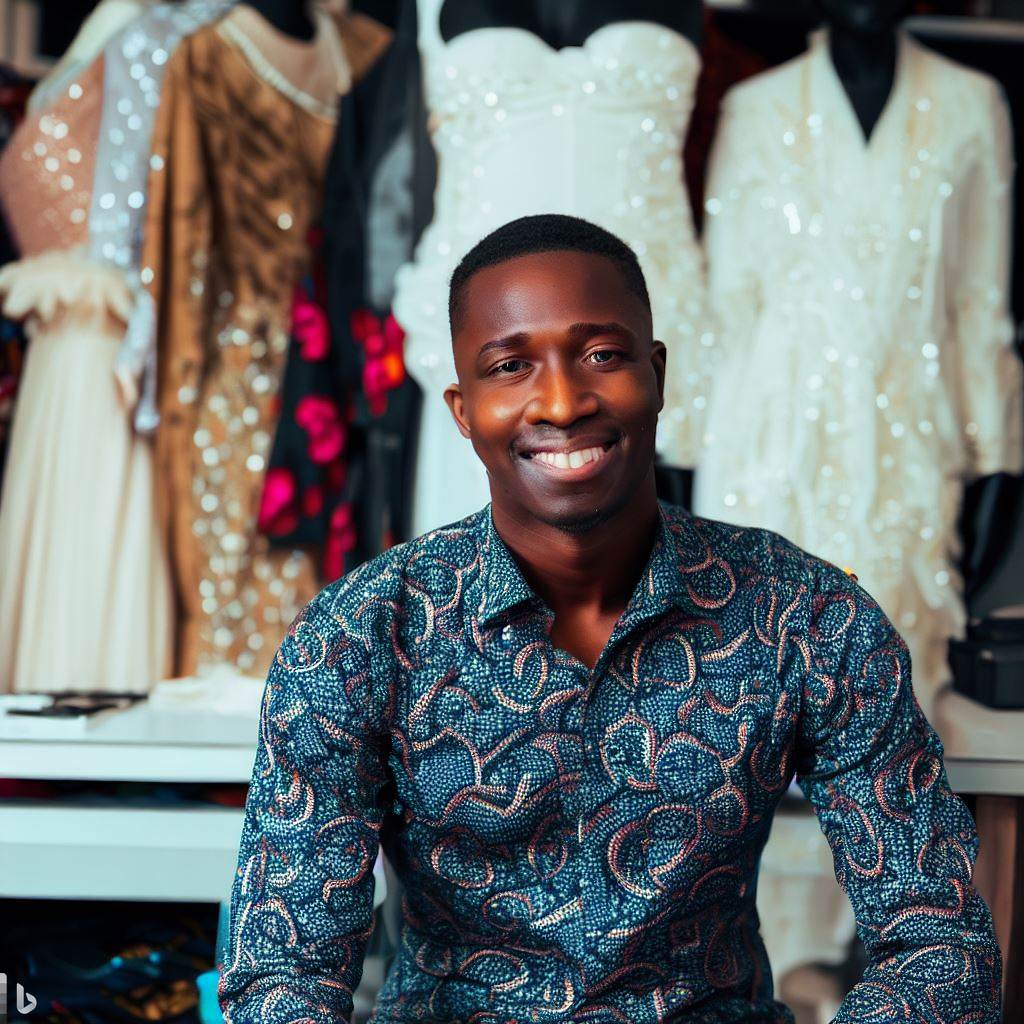Introduction
Nigerian fashion designers have skillfully merged traditional and modern aesthetics in their creations.
This fusion embodies the rich cultural heritage of Nigeria while keeping up with contemporary fashion trends.
It is crucial to preserve cultural elements in fashion as they provide a sense of identity and uniqueness to Nigerian designers.
By combining tradition and modernity, Nigerian fashion designers showcase their creativity and talent, resulting in stunning and innovative designs that captivate both local and international audiences.
This blend not only represents Nigeria’s diverse cultural heritage but also promotes cultural exchange, appreciation, and understanding across different societies.
It allows Nigerian designers to make a global impact and contribute to the growth of the fashion industry.
Cultural preservation in fashion ensures the continuity and evolution of traditional practices and craftsmanship, passing down knowledge and skills through generations.
Moreover, it empowers local artisans, providing them with opportunities to showcase their craftsmanship and contribute to the revival of traditional techniques.
The integration of tradition and modernity in Nigerian fashion not only brings pride and recognition to the country’s cultural heritage but also contributes to the economic development of Nigeria’s fashion industry.
Basically, blending tradition and modernity in fashion is a crucial aspect of Nigerian fashion designers’ work, as it allows them to honor their cultural roots while embracing innovation and creativity.
Traditional Nigerian fashion
Traditional Nigerian fashion holds a deep-rooted significance in the country’s rich cultural heritage.
It is an essential part of Nigerian identity, reflecting the diverse ethnic groups and their unique customs.
Over the years, Nigerian fashion has evolved, bridging the gap between tradition and modernity, creating a fusion of styles that is admired worldwide.
A. History of Nigerian fashion and its influence on modern designs
The history of Nigerian fashion dates back centuries, with each ethnic group having its distinct clothing traditions.
These traditions were influenced by factors such as climate, social status, and religious beliefs.
Nigerian fashion also became a form of self-expression, representing the wearer’s individuality and cultural pride.
The influence of Nigerian fashion on modern designs can be seen in various aspects.
Traditional motifs, patterns, and color schemes continue to inspire contemporary fashion creations.
Nigerian designers have skillfully blended these elements with modern silhouettes and fabrics to create unique and trendy pieces that resonate with the global fashion scene.
B. Traditional Nigerian clothing styles and materials
The clothing styles in traditional Nigerian fashion are diverse and captivating.
The attire worn by different ethnic groups reflects their specific cultural practices and societal roles.
For example, the Yoruba tribe is known for their adire fabric, a hand-dyed textile featuring intricate patterns and motifs.
The Igbo tribe, on the other hand, is famous for their vibrant wrapper skirts and blouses made from George fabric.
Materials play a crucial role in traditional Nigerian fashion.
Locally sourced fabrics such as Ankara, Aso oke, and Akwete are widely used in creating traditional outfits.
Ankara, a vibrant and colorful cotton fabric, has become particularly popular both within and outside Nigeria.
Its versatility and eye-catching designs have made it a staple in modern Nigerian fashion.
C. Traditional Nigerian fashion designers
Nigeria is home to countless talented fashion designers who have gained international acclaim for their unique creations.
These designers are celebrated for their ability to blend tradition with modernity while keeping the essence of Nigerian fashion intact.
Some notable names include Lisa Folawiyo, Deola Sagoe, and Mai Atafo, who have showcased their designs on renowned fashion runways worldwide.
The rise of Nigerian fashion designers has opened up opportunities for cultural exchange and collaboration.
International fashion houses have increasingly sought to work with Nigerian designers, recognizing the creativity and craftsmanship they bring to the industry.
This collaboration has led to the global recognition and appreciation of Nigerian fashion.
Generally, traditional Nigerian fashion is an integral part of the country’s heritage and identity.
Its influence on modern designs can be seen in the fusion of traditional elements with contemporary styles.
Nigerian fashion designers have played a significant role in showcasing the beauty and uniqueness of traditional Nigerian clothing styles and materials.
Through their creativity and craftsmanship, they have cemented Nigeria’s position on the global fashion map, blending tradition and modernity seamlessly.
Read: Breaking Barriers: Becoming a Costume Designer in Nigeria
Modern Nigerian Fashion Industry
The Nigerian fashion industry has experienced significant growth and transformation in recent years.
With a rich cultural heritage and a vibrant fashion scene, Nigeria has become a hub for creativity and innovation in the fashion world.
A. Overview of the Current Fashion Industry in Nigeria
Nigeria has a diverse and dynamic fashion industry that represents the country’s cultural heritage.
The industry is characterized by a blend of traditional and modern elements, creating unique and innovative fashion designs.
Nigerians have a strong affinity for fashion, and it is an integral part of their social and cultural identity.
B. Emergence of Nigerian Fashion Designers on the Global Stage
Nigerian fashion designers have gained international recognition for their creative talent and unique designs.
They have successfully bridged the gap between traditional Nigerian aesthetics and global fashion trends.
Designers such as Deola Sagoe, Ituen Basi, and Lisa Folawiyo have showcased their collections at top fashion events around the world.
These designers have been featured in renowned fashion publications, further raising their global profile.
Nigerian fashion designers bring a fresh perspective to the global fashion industry, celebrating their cultural heritage while embracing modernity.
C. Growth of Fashion Weeks, Shows, and Events in Nigeria
Nigeria has witnessed a significant increase in the number of fashion weeks, shows, and events held across the country.
Lagos Fashion Week, one of Nigeria’s premier fashion events, attracts renowned designers, models, and fashion enthusiasts from around the world.
Other noteworthy fashion events include Arise Fashion Week and Africa Fashion Week Nigeria.
These events serve as platforms for both established and emerging Nigerian designers to showcase their talent and connect with the global fashion community.
Nigerian fashion weeks and events also contribute to the growth of the country’s fashion industry by providing exposure and opportunities for the local fashion ecosystem.
Essentially, the modern Nigerian fashion industry is a vibrant and thriving sector that seamlessly combines tradition and modernity.
Nigerian fashion designers have made a significant impact on the global stage, gaining recognition for their unique designs.
With the growth of fashion weeks, shows, and events, Nigeria continues to establish itself as a fashion destination.
The industry’s rich cultural heritage and creative talent ensure that Nigerian fashion remains at the forefront of global fashion trends.
Read: Cultural Influence in Nigerian Costume Design Practice
Blending Tradition and Modernity
Fashion design is an art that constantly evolves, and one way designers achieve this is by blending tradition and modernity.
This concept involves incorporating traditional elements into modern fashion designs, creating a unique and culturally rich aesthetic.
Nigerian fashion designers have successfully embraced this approach, creating stunning pieces that celebrate their rich heritage while appealing to the modern fashionista.
A. The concept of blending tradition and modernity in fashion design
Blending tradition and modernity in fashion design encourages creativity and innovation.
It allows designers to pay homage to their roots while exploring new techniques, materials, and styles.
By combining traditional elements with modern influences, designers create fashion pieces that are not only visually appealing but also culturally significant.
B. How Nigerian designers infuse traditional elements into modern designs
Nigerian designers excel at infusing traditional elements into modern designs.
They draw inspiration from various aspects of their cultural heritage, such as traditional garments, motifs, and craftsmanship techniques.
These elements are carefully incorporated into contemporary designs, resulting in unique pieces that tell a story of tradition and cultural identity.
C. Examples of successful blending of tradition and modernity in Nigerian fashion
1. Use of Ankara fabric
One example of successful blending of tradition and modernity in Nigerian fashion is the use of Ankara fabric.
Ankara, also known as African wax print, is a colorful and vibrant fabric widely used in Nigerian fashion.
Designers have taken the traditional fabric and transformed it into modern silhouettes, such as bodycon dresses, jumpsuits, and blazers.
This blending of traditional fabric with modern designs creates a striking visual impact that showcases Nigerian heritage in a contemporary way.
2. Inclusion of traditional patterns and motifs in modern fashion
Another example is the inclusion of traditional patterns and motifs in modern fashion.
Nigerian designers often incorporate traditional tribal patterns, such as adire, aso-oke, and kente, into their designs.
These patterns are featured in various ways, from prints on garments to intricate embroidery and beadwork.
By infusing these traditional elements, designers add a touch of cultural significance to their creations, making them truly unique and representative of Nigerian traditions.
3. Through the use of traditional accessories
Nigerian designers also blend tradition and modernity through the use of traditional accessories.
Beaded jewelry, headwraps, and handwoven baskets are some of the traditional elements that are integrated into contemporary designs.
These accessories not only enhance the overall look but also serve as a reminder of the rich cultural heritage of Nigeria.
In recent years, Nigerian fashion designers have gained international recognition for their ability to blend tradition and modernity seamlessly.
Designers like Lisa Folawiyo, Deola Sagoe, and Mai Atafo have successfully showcased Nigerian fashion on global runways, highlighting the beauty of blending tradition and modernity.
These designers have bridged the gap between traditional Nigerian fashion and global fashion trends, creating a unique and vibrant style that appeals to both local and international markets.
In general, blending tradition and modernity in fashion design is an exciting approach that Nigerian designers have mastered.
By infusing traditional elements into modern designs, they celebrate their cultural heritage while catering to the demands of the contemporary fashion world.
The success of Nigerian designers in blending tradition and modernity is evident in their stunning creations, which showcase the beauty and diversity of Nigerian fashion on a global stage.
Read: The Role of Costume Designers in Nigeria’s Nollywood
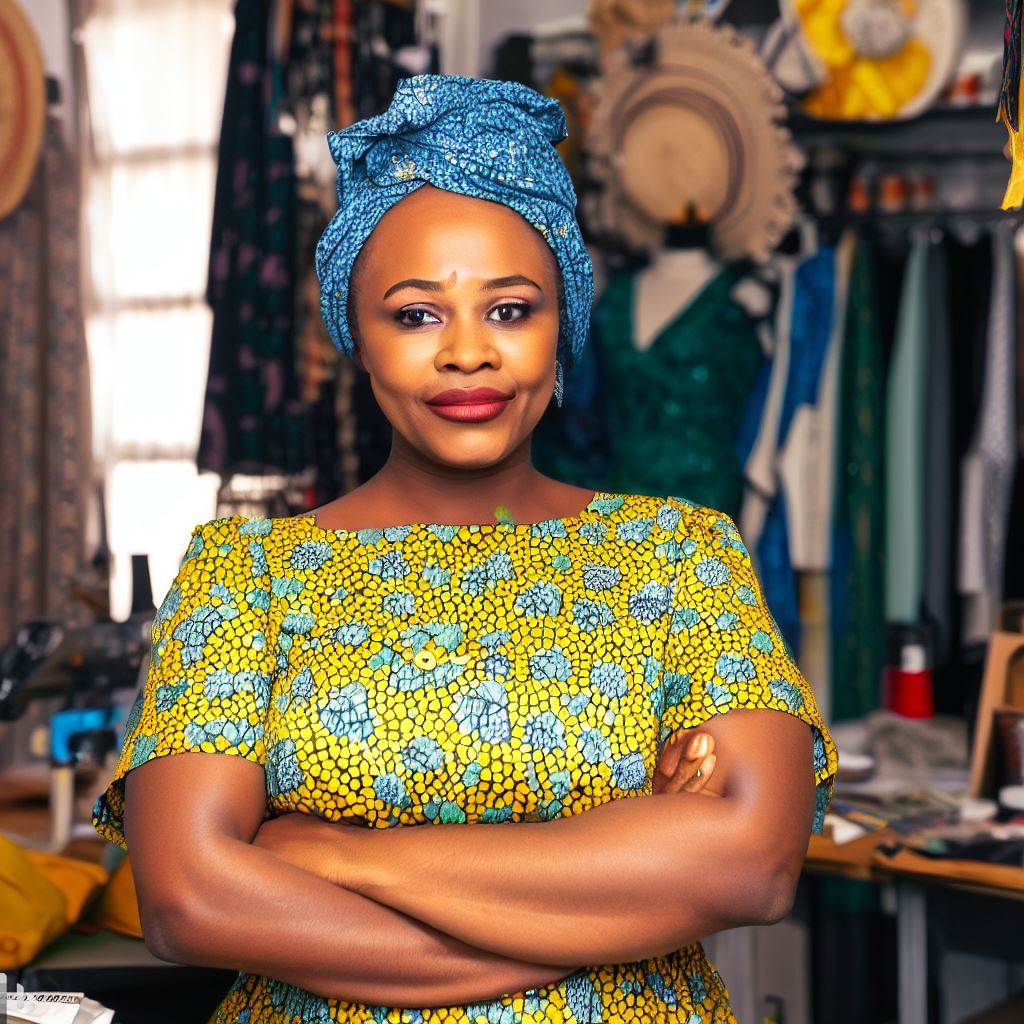
Cultural Significance and Impact
A. Cultural significance of traditional Nigerian fashion
Traditional Nigerian fashion holds great cultural significance as it represents the historical, social, and religious values of the Nigerian people.
Each ethnic group within Nigeria has its own unique traditional attire, often adorned with intricate patterns, symbols, and colors that hold specific meanings.
Publish Your Professional Profile, Business or Brand
Showcase your expertise, gain trust, and boost visibility instantly on Professions.ng.
Publish NowThese traditional outfits are worn during special occasions such as weddings, festivals, and ceremonies, symbolizing identity, pride, and heritage.
B. How blending tradition and modernity allows for cultural preservation and innovation
The blending of tradition and modernity in Nigerian fashion design has become a powerful tool for cultural preservation and innovation.
Designers incorporate traditional Nigerian fabrics such as Ankara, Aso-oke, and Adire into modern silhouettes, creating a unique fusion of past and present.
This fusion not only ensures the continuation of traditional handcrafted techniques but also allows for experimentation and the introduction of new styles and trends.
C. Impact of Nigerian fashion designers on the local economy and tourism
Nigerian fashion designers have made a significant impact on the local economy and tourism industry.
Their creations have gained international recognition, attracting buyers and fashion enthusiasts from around the world.
This influx of interest has led to increased revenue for designers, local artisans, and textile manufacturers.
Furthermore, fashion events such as Lagos Fashion Week and Arise Fashion Week have become major tourism attractions, drawing visitors eager to experience the vibrant Nigerian fashion scene.
The growth of the fashion industry has also created job opportunities, particularly for young Nigerians passionate about fashion and design.
Many designers have established their own fashion houses, employing local tailors, seamstresses, and artisans.
The demand for Nigerian textiles has increased, benefiting weavers, dyers, and fabric producers who work tirelessly to meet the industry’s demands.
Additionally, Nigerian fashion designers actively promote sustainable fashion practices by incorporating ethical production methods, supporting local artisans, and utilizing eco-friendly materials.
This commitment to sustainability has attracted conscious consumers, further enhancing the industry’s positive impact on the local economy.
In essence, traditional Nigerian fashion holds immense cultural significance and plays a crucial role in preserving the country’s rich heritage.
The blending of tradition and modernity allows for the evolution and innovation of Nigerian fashion, attracting global attention and making a substantial economic impact.
With its vibrant colors, intricate designs, and cultural symbolism, Nigerian fashion continues to inspire and captivate both locals and foreigners, contributing to the country’s cultural legacy and economic growth.
Read: Fashion Design in Nigeria: A Career with Global Impact
Challenges and criticisms
Challenges and criticisms faced by Nigerian fashion designers in blending tradition and modernity include:
- Limited market acceptance: Traditional Nigerian garments may not be embraced by a global audience, leading to a smaller market for designers.
- Balancing cultural sensitivity: Designers must tread carefully to avoid cultural appropriation or misrepresentation of traditional Nigerian garments.
- Lack of infrastructure: Nigeria’s fashion industry is still developing, with limited resources, production facilities, and technology.
- High production costs: Traditional fabrics and handmade techniques can be expensive, making it challenging for designers to produce affordable garments.
- Global competition: Nigerian designers must compete with internationally renowned fashion houses, which can make it difficult to gain recognition and establish a strong market presence.
- Bridging the generation gap: Blending tradition and modernity requires appealing to both older generations, who value tradition, and younger generations, who embrace modern fashion trends.
Controversies and criticisms surrounding the blending approach in Nigerian fashion design
- Accusations of cultural dilution: Some critics argue that blending tradition and modernity dilutes the authenticity of traditional Nigerian garments.
- Deviation from cultural roots: There are concerns that designers prioritize modern elements over traditional elements, leading to a loss of cultural identity.
- Misrepresentation of Nigerian culture: Critics argue that poorly executed blending can perpetuate stereotypes or misconceptions about Nigerian culture.
- Western influence: Opponents claim that the blending approach results in a Westernization of Nigerian fashion, eroding its unique cultural significance.
- Straying from craftsmanship: Traditional Nigerian garments are often handmade with intricate craftsmanship, which some critics say is compromised in the blending approach.
- Disconnection from local buyers: A controversy arises when local buyers feel that the modern blends do not cater to their preferences and needs.
Addressing these challenges
Despite the challenges and criticisms, Nigerian fashion designers continue to find innovative ways to blend tradition and modernity, showcasing the rich cultural heritage of Nigeria while appealing to contemporary fashion trends.
To address the challenges, designers can:
- Collaborate with international fashion experts to learn new techniques and gain exposure to a wider market.
- Utilize technology to improve production efficiency and reduce costs, such as exploring digital printing or automated manufacturing processes.
- Educate consumers about the cultural significance and craftsmanship of traditional Nigerian garments, fostering appreciation and understanding.
- Seek government support by advocating for improved infrastructure, funding, and policies that promote the growth of the fashion industry.
- Emphasize sustainability by incorporating eco-friendly practices, such as utilizing organic fabrics or promoting ethical manufacturing processes.
- Engage in cultural exchanges and collaborations with designers from different backgrounds to bridge cultural gaps and foster creativity.
In short, blending tradition and modernity in Nigerian fashion design comes with its fair share of challenges and criticisms.
However, by addressing these concerns and actively seeking innovative solutions, Nigerian fashion designers can continue to create unique, culturally rich garments that resonate with both local and global audiences.
Conclusion
The blending of tradition and modernity by Nigerian fashion designers is of utmost importance.
By incorporating traditional elements into their designs, these designers not only preserve their cultural heritage but also create unique and stunning pieces that resonate with a global audience.
The positive impact of Nigerian fashion is evident through its recognition on international runways and platforms, shining a spotlight on the country’s immense talent and creativity.
It is crucial for us as readers to support and appreciate Nigerian fashion designers by investing in their works and celebrating their contributions to the fashion industry.
By doing so, we not only empower these designers but also contribute to the promotion and preservation of Nigerian culture and heritage.
Let us embrace and cherish Nigerian fashion designers, for they truly represent the beauty of tradition blended with modernity.

